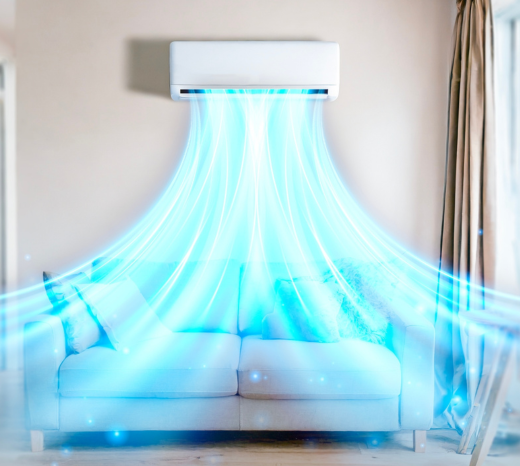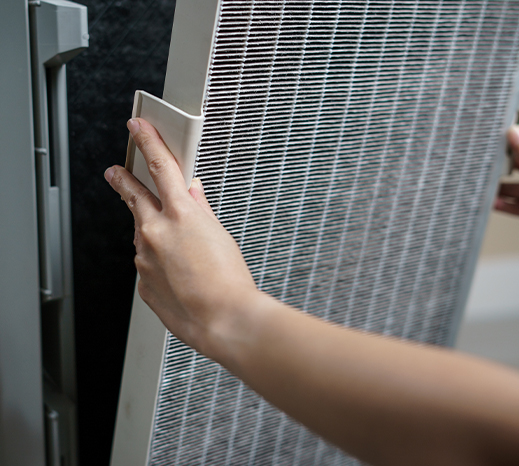Indoor Air Quality Testing Waterloo and Listowel
When we consider things we can do to live healthier lives, ways to improve indoor air quality should be high up on our list. According to the Enviro...

When we consider things we can do to live healthier lives, ways to improve indoor air quality should be high up on our list. According to the Environmental Protection Agency, we spend about 90% of our time indoors and the air in our homes can contain 2-5x more pollutants than the air outside.
Interestingly, the people who are most susceptible to the harmful effects of pollution — very young children and the elderly — tend to spend even more time indoors, which makes improving your indoor air quality even more of a priority.
In this blog, we outline seven things you can do today that will improve your indoor air quality almost immediately.

1. Stop using air fresheners
Generally speaking, air fresheners just mask the smell of existing odours by covering them up with new chemicals. These fresheners emit a spray that will line your nasal passages with an oily film to help block the smell and sometimes they will also include a nerve-deadening agent.
2. Better ventilation
Many new homes and renovated older homes have been weather-sealed to the point where no fresh air can get in to replace the stale air. We recommend using an air exchanger or opening windows to allow for fresh air to enter your home.

3. Extinguish candles
As lovely as your cinnamon apple candle might smell, the truth is that it's not only putting out chemicals (see #1), it’s likely putting out more soot than unscented candles. Not only should soot not be breathed in, but it can also coat your walls and furniture in a black veneer.
4. Eliminate mould
Keeping the humidity in your home between 35-45% will help prevent mould growth. Damp areas are mould breeding grounds and airborne mould spores can cause a number of serious respiratory problems.
5. Use better furnace filters
If you have a furnace, all the air in your home will travel through the filter several times a day. A good quality furnace filter can remove many airborne particles and allergens. Some filters can cause problems with your furnace, so check with your heating contractor before selecting a new type of filter.
6. Exercise caution when cleaning
The fumes from cleaning chemicals can be harmful. According to a CTV News report in 2015:
“A half-hour kitchen clean-up using common household cleansers, wipes and sprays dramatically boosts harmful indoor air pollution, according to a new study by an environmental advocacy group.
Concentrations of volatile organic compounds more than doubled in nine homes during the experiment by Environmental Defence, while the air quality in 12 of the total 14 households involved was above the level that some jurisdictions consider safe.”

7. Air purifiers
There are several models of home air purifiers on the market. The best model is one that’s mounted directly to your ductwork. Advanced models will filter particulates from the air in your home and use ultraviolet light to break down VOCs and destroy airborne viruses and bacteria.
If you would like more information about ways to improve your home air quality, get in touch!



